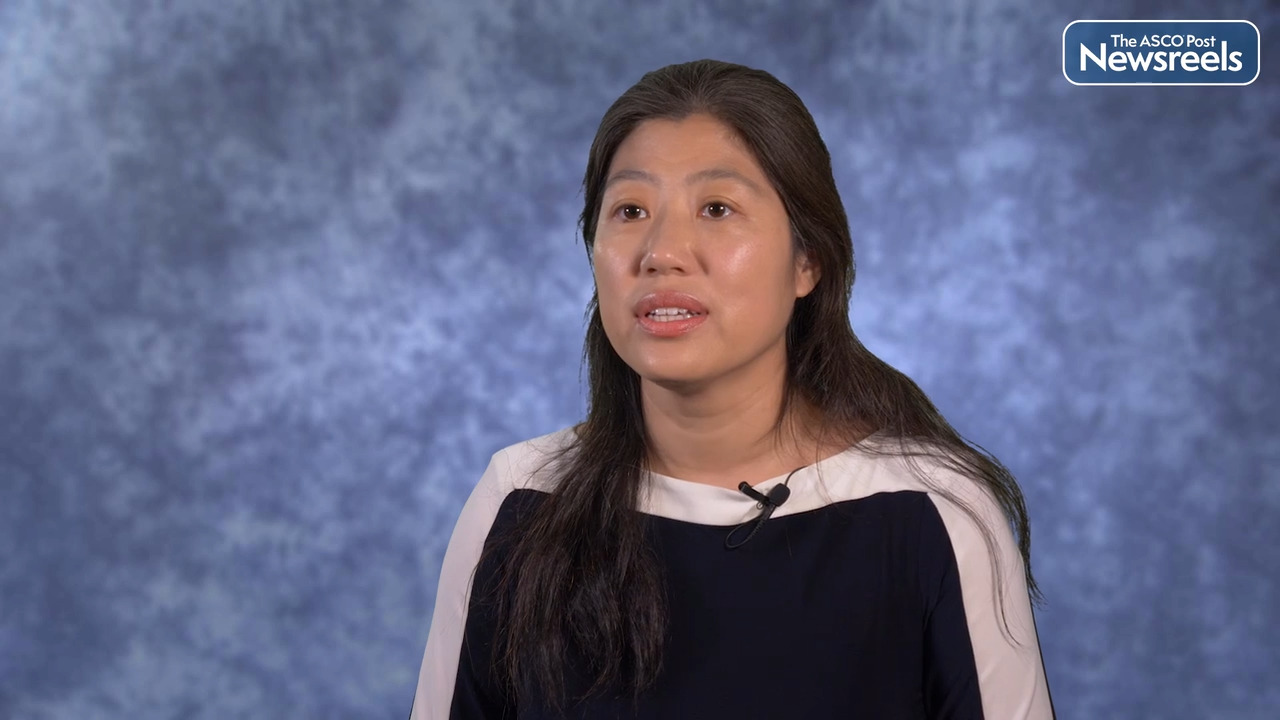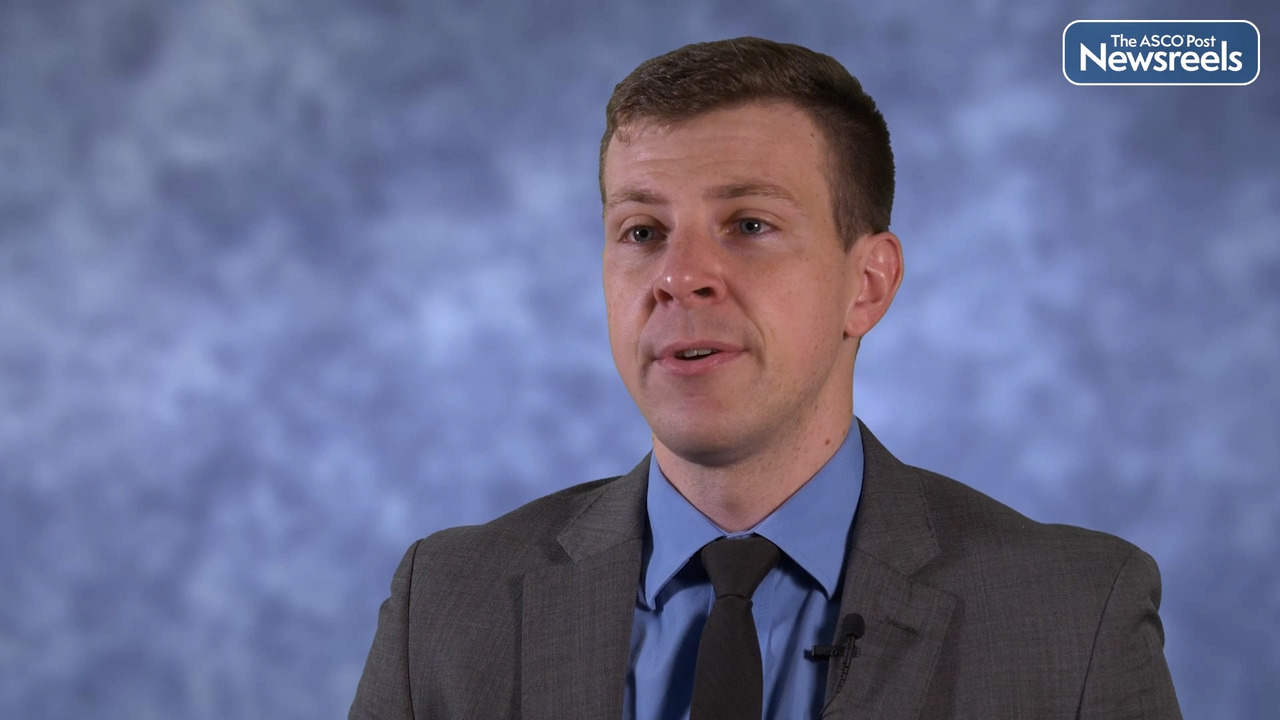Limited or No State Regulation of STLD Health Plans Linked to Decreases in Timely Cancer Treatment Initiation
In 2018, the federal government expanded the coverage duration of short-term limited-duration (STLD) health plans from 3 months to less than 12 months, with the option to renew for a total duration of up to 36 months. Some states imposed more stringent regulations than those federally imposed or...
Study Finds Postapproval Cancer Trials Fell After Inflation Reduction Act
Research published by Zheng et al in Health Affairs Scholar found that the passage of the government price-setting provisions of the Inflation Reduction Act (IRA) was associated with a broad decline in industry-funded oncology trials after first U.S. Food and Drug Administration approval, with...
Patient and Health-Care Professional Groups Express Support for Bipartisan Clinical Trial Bill
More than 100 organizations representing millions of patients with serious health conditions and health-care professionals sent a letter to Congress expressing their strong support for the Clinical Trial Modernization Act. Introduced in the House of Representatives in May 2025 by Reps. Raul Ruiz...
CBO Report Finds Federal Cuts to NIH Would Threaten New Drug Development and Innovation
A new report from the nonpartisan Congressional Budget Office (CBO) has found that proposed cuts at the National Institutes of Health (NIH) could lower the number of new drugs that come to market in the next 3 decades. The report comes as Congress considers President Trump’s proposed budget for...
Proposed Budget Cuts to Medicaid May Result in More Than 16,500 Medically Preventable Deaths Annually
The “One, Big, Beautiful” reconciliation bill making its way through Congress, which would make permanent provisions in the 2017 Tax Cuts and Jobs Act set to expire this year, includes massive cuts to Medicaid and Affordable Care Act marketplace coverage. An analysis of six potential Medicaid cuts...
Patient Advocacy Groups: Health-Care Programs Are Lifelines—Not Line Items
Forty nonprofit, nonpartisan organizations issued a statement this week to the House Energy & Commerce and Ways & Means Committees in regard to budget cuts and policy changes affecting Medicaid and health-care marketplaces. “As organizations representing millions of patients with serious...
Deciphering the Impact of the 2024 Election on Cancer Care
Two weeks after the 2024 election, the Presidency and 119th Congress are coming into focus, with nearly all races called. Republican Donald Trump was elected President, and Republicans regained control of the U.S. Senate (53–47) and maintained control in the House of Representatives (218–212 at...
Prior Authorization Delays May Lead to Severe Consequences for Patients With Cancer
A recent nationwide survey has confirmed that prior authorization may cause treatment delays, abandoned treatments, hospitalizations, and deaths among patients with cancer, according to an executive summary published by the American Society for Radiation Oncology (ASTRO). The findings may reinforce ...
AMA House of Delegates Adopts ASCO-Sponsored Resolutions on Interpretation of Stark Law and Prior Authorization Costs
On September 23, 2024, the U.S. House of Representatives passed the Seniors’ Access to Critical Medications Act of 2024 (H.R. 5526), which would make permanent a waiver put in place during the COVID-19 pandemic that allowed Medicare patients to receive medications dispensed by in-office pharmacies...
Cancer Provider Groups Across the Country Urge Congress to Pass Prior Authorization Reform
The Association for Clinical Oncology (ASCO), along with 46 state oncology societies, sent a letter to U.S. House and Senate leadership urging Congress to pass the Improving Seniors’ Timely Access to Care Act (H.R. 8702/S. 4532), which would streamline prior authorization practices within Medicare...
Navigating Uncharted Waters in the Post-Chevron Sea Change
It is not often that the oncology community looks to the Supreme Court to forecast its future. In 2024, two decisions seemingly unrelated to health care were issued that are likely to have a monumental impact on oncology care delivery. The Court’s rulings—on June 28, Loper Bright Enterprises et ...
ACA May Increase Access to Colorectal Cancer Care Among Underserved Groups
The Affordable Care Act (ACA) has increased guideline-concordant care for colorectal cancer among non-White patients, those from rural areas, and those from the most deprived neighborhoods in Pennsylvania, according to new findings presented by Kudaravalli et al at the 2024 American Association for ...
SCOTUS Ruling Upends Country’s Regulatory Framework, Threatens to Complicate and Delay Health-Care Delivery
The Association for Clinical Oncology (ASCO) has serious concerns about the impact of the Supreme Court’s rulings in Loper Bright Enterprises v Raimondo and Relentless, Inc. v Department of Commerce on cancer care. These decisions overturned the “Chevron deference” or “Chevron doctrine,” a legal...
Physician Community Comes Together to Urge Congress to Act on Medicare Payment Reform
ASCO, along with more than 100 medical organizations and societies, sent a letter to members of the U.S. House and Senate leadership urging Congress to prioritize and advance several bills and legislative proposals that would provide greater fiscal stability for physicians and reform key elements...
PSA Screening for HIM Act Introduced in Senate; Aims to Reduce Costs for Prostate Cancer Screening
Bipartisan legislation that may help to eliminate financial barriers to prostate cancer screening was introduced in the U.S. Senate. Sponsored by Senators Cory Booker (D-NJ) and John Boozman (R-AR), the Prostate-Specific Antigen Screening for High-Risk Insured Men (PSA Screening for HIM) Act would...
Cancer Moonshot Initiative Receives $240 Million Boost
On September 13, during a meeting of the Cancer Cabinet, President Joe Biden and First Lady Dr. Jill Biden announced a $240 million investment to accelerate advances in cancer-related projects, with the aim of improving treatments and reducing cancer mortality over the next 25 years. The funding,...
AACR Issues Annual Cancer Progress Report
The remarkable progress in medical research—primarily supported by federal investments in the National Institutes of Health (NIH) and the National Cancer Institute (NCI)—over the past 3 decades, coupled with advances in cancer prevention and early detection, has led to a 33% reduction in cancer...
Ibrutinib Included Among the 10 Drugs Slated for Medicare Price Negotiations
On August 29, the Biden Administration announced the first 10 prescription medications that will be included in Medicare’s price negotiations with drug manufacturers as the government aims to reduce the financial burden on millions of older Americans and potentially save the Medicare program...
Effect of Medicaid Expansion on Survival for Young Adults With Cancer
In a study reported in the Journal of Clinical Oncology, Ji et al found that Medicaid expansion through the Affordable Care Act (ACA) has been associated with improved 2-year survival among young adults with cancer, with greater benefits observed in patients with breast cancer, those with stage IV...
Study Finds Medicaid Expansion May Improve Survival Outcomes for Young Adult Patients With Cancer
Researchers have discovered that expanded Medicaid coverage under the Affordable Care Act may lead to better survival outcomes for young adult patients aged 18 to 39 years who have been newly diagnosed with cancer—particularly among those who identify as Hispanic or non-Hispanic Black—according to...
Bipartisan Comprehensive Cancer Survivorship Act Introduced
On December 14, U.S. Representative Mark DeSaulnier (D-CA), Representative Debbie Wasserman Schultz (D-FL), Senator Amy Klobuchar (D-MN), Senator Ben Cardin (D-MD), and Representative Brian Fitzpatrick (R-PA) introduced the Comprehensive Cancer Survivorship Act (CCSA)—legislation that will address...
Xuesong Han, PhD, on Medicaid Expansion and Receipt of Palliative Care Among Individuals Newly Diagnosed With Advanced-Stage Cancers
Xuesong Han, PhD, of the American Cancer Society, discusses findings showing that among newly diagnosed patients with stage IV cancers, Medicaid expansion was associated with increases in receipt of palliative care, although overall usage was low. The increase varied by cancer type. Improving Medicaid coverage may facilitate access to guideline-based palliative care (Abstract 73).
Medicaid Expansion and Palliative Care Use Among Patients Newly Diagnosed With Advanced Cancer
Recent data showed that Medicaid expansion may be associated with increased use of palliative care among newly diagnosed individuals with stage IV cancer, although overall usage of palliative care was low. In addition, the increase after Medicaid expansion varied by cancer type, according to a...
Justin M. Barnes, MD, on Medicaid Expansion and Changes in Cancer Mortality Rates
Justin M. Barnes, MD, of the Washington University School of Medicine, discusses the ways in which Medicaid expansion under the Affordable Care Act seems to affect distant diagnoses and cancer deaths per year, the differences in the impact of expansion between Black and White patients in the United States, and why insurance alone appears to be insufficient to overcome structural barriers to care for some populations.
Report Emphasizes Continued Access to Fertility Preservation Is Critical for AYAs With Cancer Following SCOTUS Decision
The Supreme Court of the United States (SCOTUS) ruling in Dobbs v Jackson overruled Roe v Wade, returning an individual’s right to access abortion services to state law. New findings led by researchers at the American Cancer Society published by Jiang et al in The Lancet Oncology showed that more...
Research Finds Medicaid Expansion Led to Decreases in Cancer Incidence and Mortality Rates
State-run Medicaid insurance, expanded in 2014 as part of the Affordable Care Act, has resulted in decreased metastatic cancer incidence rates as well as decreased overall cancer mortality rates, and has averted over 1,000 deaths due to cancer per year. About 12% of the improvements in cancer...
ASCO Applauds President Biden’s Leadership in Relaunching the Cancer Moonshot
On September 12, Lori J. Pierce, MD, FASTRO, FASCO, Board Chair of the Association for Clinical Oncology (ASCO), made the following statement: “President John F. Kennedy’s historic speech that inspired our nation and an entire generation of Americans to achieve manned space exploration underscored ...
Perspective Article Explores Implications of Supreme Court Abortion Ruling on Pregnant Women With Cancer
The repercussions of overturning Roe v Wade—and the failure of the Supreme Court to provide any guidance on exceptions related to the life and health of the mother—are potentially catastrophic for a subset of women who face a life-threating diagnosis of pregnancy-associated cancers. In a...
Invest in the Unexpected: Basic Research Enterprise Needs Adequate Funding to Foster Treatment Innovation
The National Institutes of Health (NIH) now stands as the largest single public funder of biomedical research in the world.1 The FY2022 Consolidated Appropriations Act (H.R. 2471), signed into law in March, increases biomedical research funding by nearly 5%, and it provides a total of $45 billion...
Did the ACA’S Medicaid Expansion Affect Cancer Clinical Trial Enrollment?
Researchers from the SWOG Cancer Research Network, a clinical trials group funded by the National Cancer Institute (NCI), found that the Affordable Care Act’s (ACA) expansion of Medicaid insurance in 2014 was followed by a significant increase in the proportion of patients enrolling in SWOG trials...
Medicaid Expansion Is Associated With Increased Survival in Newly Diagnosed Patients With Cancer
A large study led by researchers at the American Cancer Society showed that Medicaid expansion under the Affordable Care Act (ACA) was associated with an increase in 2-year overall survival rates among patients newly diagnosed with cancer, especially among non-Hispanic Black people and people...
PREVENT Pandemics Act Would Improve Public Health in the United States
ASCO sent comments to leadership of the U.S. Senate Committee on Health, Education, Labor, and Pensions (HELP) regarding the Prepare for and Respond to Existing Viruses, Emerging New Threats, and Pandemics Act (PREVENT Pandemics Act). This legislation aims to improve the nation’s public health and...
Robert M. Califf, MD, MACC, Confirmed as FDA Commissioner
On February 15, the Senate voted 50 to 46 to confirm Robert M. Califf, MD, MACC, as Commissioner of the U.S. Food and Drug Administration (FDA). Dr. Califf was previously the Commissioner of the FDA from February 2016 to January 2017. He also served as the FDA’s Deputy Commissioner for Medical...
President Biden Reignites Cancer Moonshot
As Vice President, in 2016, Joe Biden launched the Cancer Moonshot with the mission to accelerate the rate of progress against cancer. The cancer and patient community and medical researchers responded with energy and ingenuity. On February 2, President Biden announced the reigniting of the Cancer ...
Leticia Nogueira, PhD, MPH, on the Association of Medicaid Expansion and Early Mortality Following Lung Cancer Surgery
Leticia Nogueira, PhD, MPH, of the American Cancer Society, discusses results from a study designed to evaluate the impact of Medicaid expansion under the Affordable Care Act (ACA). In Medicaid-expansion states, mortality among patients after lung cancer surgery decreased from 2.4% before the ACA to 0.8% after the ACA, with no significant change in non–Medicaid-expansion states.
Evaluation of Baseline Cancer Mortality Risk in Medicaid Expansion and Nonexpansion States
In a study of National Cancer Database data reported in a research letter in JAMA Oncology, Salazar et al found little difference in baseline cancer mortality rates between U.S. states that expanded Medicaid enrollment and nonexpansion states prior to expansion in 2009 and immediately following...
Jingxuan Zhao, MPH, on How Medicaid Expansion Affects Long-Term Cancer Survival
Jingxuan Zhao, MPH, of the American Cancer Society, discusses study findings that showed worse long-term survival among low-income patients with cancer who live in states that have not expanded Medicaid eligibility (Abstract 6512).
Study Finds Income Eligibility Limits for Medicaid May Be Associated With Worse Long-Term Survival Among Newly Diagnosed Patients With Cancer
A study investigating the association between state Medicaid income eligibility limits and long-term survival among newly diagnosed patients with cancer has found that patients living in states with lower Medicaid income eligibility limits had worse long-term survival compared with patients living...
Report Shows Medicaid Expansion Alone Does Not Resolve Disparities in Cancer Care
In the United States, Black and Latinx individuals have higher cancer mortality rates than patients of other races. Under the Patient Protection and Affordable Care Act (ACA) in 2014, many states expanded Medicaid eligibility, promising significant gains in coverage for racial minorities. But it...
Breast Reconstruction Disparities Improved With Medicaid Expansion
Medicaid expansion under the Affordable Care Act was associated with significant increases in breast reconstruction among non-Hispanic Black women, achieving parity at times with non-Hispanic White women, according to a new study presented by Sharon Lum, MD, and colleagues at the American Society...
‘State of Tobacco Control’ 2021 Report Says Ending Tobacco Use Is Critical, Especially During the COVID-19 Pandemic
Even amid the COVID-19 pandemic, tobacco use remains a serious public health threat. In addition to tobacco-related death and disease, smoking also increases the risk of the most severe impacts of COVID-19. The American Lung Association has released its 19th annual “State of Tobacco Control”...
Dense Breast Notification Legislation: Recorded Effects and Future Recommendations
According to findings published by Kressin et al in the Journal of the American College of Radiology, women living in states where dense breast notifications are legislatively mandated had higher rates of being informed about personal breast density and of having had breast density discussions with ...
Study Finds Medicaid Expansion in Louisiana Increased Early-Stage Breast Cancer Diagnosis and Access to Treatment
A study by Quyen D. Chu, MD, MBA, FACS, and colleagues published in the journal Cancer investigated how expansion of the Medicaid provision in the the Patient Protection and Affordable Care Act (ACA) affected breast cancer care in Louisiana. The state is the third poorest in the country and has one ...
Medicaid Expansion Associated With Decreased Mortality in Patients With Newly Diagnosed Breast, Colorectal, and Lung Cancers
In states that have expanded Medicaid availability as part of the Affordable Care Act (ACA), mortality rates for three major types of cancer are significantly lower than in states that have not expanded their Medicaid, according to findings from a new study published by Miranda B. Lam, MD, MBA, and ...
AACR Releases 10th Edition of Annual Cancer Progress Report
The American Association for Cancer Research (AACR) has released the 10th edition of its annual Cancer Progress Report. The report highlights how cancer research, largely supported by federal investments in the National Institutes of Health (NIH) and the National Cancer Institute (NCI), is...
Study Finds Cancer-Related Deaths Declined in States With Expanded Access to Medicaid
States that adopted Medicaid expansion after passage of the Affordable Care Act (ACA) in 2010 saw a decline in cancer mortality rates by 29% compared with 25% in states that did not expand access to Medicaid, according to a study by Anna Lee, MD, MPH, of Memorial Sloan Kettering Cancer Center, New...
Late-Stage Cancer Diagnoses After Massachusetts Health Insurance Reform Law
Advanced-stage cancer diagnoses declined following health insurance expansion in Massachusetts, likely due to increased access to screening and diagnostic services that identified cancers earlier, according to new research published by Sabik et al in the journal Medical Care. The analysis...
AACR Cancer Progress Report 2019 Released
Today, the American Association for Cancer Research (AACR) released the AACR Cancer Progress Report 2019, which highlights how research largely supported by federal investments in the National Institutes of Health (NIH) is spurring improvements in public health and innovations across the spectrum...
Should You Become an Expert Witness in a Legal Proceeding? Here Are the Pros and Cons
Hundreds of oncologists are working “side gigs” as expert witnesses in a wide range of medicolegal settings. With increasing conflict related to liability and insurance coverage, the demand continues to grow for objective physicians who are not involved in a specific case, have no personal...




